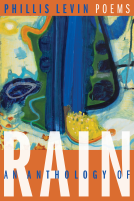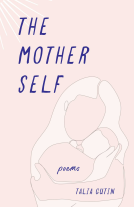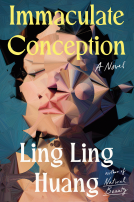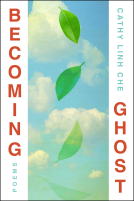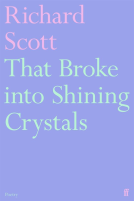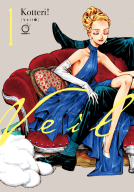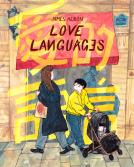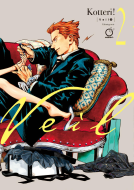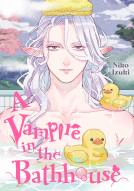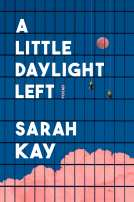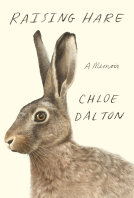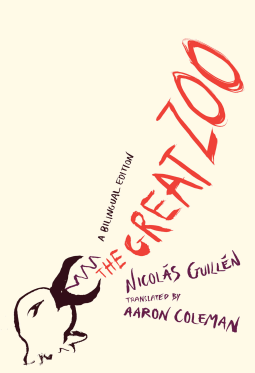
The Great Zoo
A Bilingual Edition
by Nicolás Guillén
This title was previously available on NetGalley and is now archived.
Send NetGalley books directly to your Kindle or Kindle app
1
To read on a Kindle or Kindle app, please add kindle@netgalley.com as an approved email address to receive files in your Amazon account. Click here for step-by-step instructions.
2
Also find your Kindle email address within your Amazon account, and enter it here.
Pub Date Oct 02 2024 | Archive Date Sep 09 2024
Talking about this book? Use #TheGreatZoo #NetGalley. More hashtag tips!
Description
Born in Cuba to parents of African and European ancestry, Nicolás Guillén worked in printing presses and studied law before moving into Havana’s literary scene. A virtuosic maker and breaker of forms, Guillén rose to fame by transforming a popular form of Cuban music into poetry that called attention to the experience of Afro-Cuban people, and he continued to interweave his artistic and political commitments as he traveled the world.
Originally published in Spanish in 1967, The Great Zoo is a humorous and biting collection of poems that presents a fantastical bestiary of ideas, social concerns, landscapes, phenomena, and more. The “animals” on view in this menagerie include the Mississippi and Amazon Rivers, clouds from different countries, a singing guitar, a temperamental atomic bomb, blue-pelted police, a hurricane, the KKK, and the North Star, among many others. Translated by Aaron Coleman with a keen understanding of the contexts of colonial racialization, oppression, and exoticism, this bilingual edition stands as a testament to Guillén’s carnivalesque vision.
Advance Praise
“This is a tender warning for those entering The Great Zoo, a sparkling property built by the Caribbean poet Nicolás Guillén: Be careful. You may enter in search of both beauty and social justice, but the pleasures of these poems may tempt you to never leave.” -- Nancy Morejón, author of "Looking Within / Mirar adentro"
"Welcome to the menagerie of Guillén, where you stroll between cages showcasing beetles, tigers, giraffes, and phoenixes, but also the moon, a hurricane, and the whole Caribbean Sea. Hunger is 'An animal all fang and eye.' In his whittled-down, knife-sharp, yet always playful and often humorous language, Guillén takes on the police, the KKK, the Tonton Macoute, the unspeakable horror of a lynching, the 'barbaric danger' of the atomic bomb. You are left mulling over your own place in viewing these displays. Coleman's dazzling, idiomatic, and musical Afrodiasporic translation (his phrase) brilliantly gives fresh life to these essential poems. The Great Zoo invites English-language readers to discover the power and humor and wordplay of Guillén’s poetry, which stands shoulder-to-shoulder with that of the major Latin American poets of his moment like Pablo Neruda, Gabriela Mistral, César Vallejo, Oliverio Girondo, Julia de Burgos, Pedro Mir. Coleman's deft translation of this crucial collection is superb—and its arrival is an occasion to celebrate." -- Rachel Galvin, author of "Uterotopia"
“The Great Zoo might evoke medieval bestiaries, or Borges’ fantastical bestiary, or even Neruda’s charming verse bestiary. But Guillén's hybrid humanimal/object-concept bestiary is a masterwork unto itself. Set in a hemispheric zoo, perhaps the Zoo of the {surreal and hyper-real} militarized Americas, each page takes us inside a cage where among the creatures we find: rivers, thirst, anthropomorphic hurricanes, police, money-lending bird-like things, and tiger-humans. Published in 1967, these poems could not feel more contemporary. In tone they are light and airy, yet the stakes could not be higher. Among the zoo’s inhabitants are the 'unsolvable problem' of the Ku Klux Klan; the atomic bomb; and 'the Yankee, taken back from Vietnam.' Good colonial prison that it is, The Great Zoo is a vector of nationalism, racist dehumanization, and imperialist violence. That it manages to also be funny as hell speaks to both Guillén's fiery vision, and Coleman's daring and dynamic translation. It’s no easy thing to translate humor amid the existential and colonial crises of the Americas. This is a powerful and important book.”
-- Daniel Borzutzky, author of "Murmuring Grief of the Americas"
“With a dexterity and verve that guides the reader right into the heart of the text, poet, scholar and translator Coleman provides us with an invaluable English passkey into the great Afro-Cuban poet Guillén's witty, trenchant, speculative, and revelatory collection The Great Zoo. This ‘zoo’ is anything but what we might expect; it is, rather, a tiny yet expansive tour through Cold War-era Cuba, the Caribbean and the US and rest of the West. Guillén is at his most humorous and acerbic in these poems, melding the metaphysical, historical, and critical, reminding us throughout that 'The Zoo . . . imparts what is important; no more, no less.'" -- John Keene, author of "Punks: New & Selected Poems"
“The beings held in Guillén’s Great Zoo stare at us through the bars of these pages. The tiger insists it's not a metaphor. The hurricane is just two days old. And the North Star, acquired at massive expense, is melting; the zookeepers can only stuff its growing voids with cotton. Coleman has an unerring ear for the black humor in this tender and bleak natural history; he makes Guillén's haunting 1967 bestiary very much a thing of our present.” -- Esther Allen, author of "The Silentiary"
"Coleman has written a splendid translation of Guillén’s canonical book of poems. Redefining concepts such as creature, culture, capture, and menagerie, the poet and translator work with a deceptively light touch. Guillén’s vivid clarity, ingenuity, and musicality find their match in Coleman’s translation. Originally published in 1967, El gran zoo/The Great Zoo is as fresh and inventive today as it is politically hard-hitting." -- Marguerite Feitlowitz, author of "A Lexicon of Terror"
“Guillén’s The Great Zoo is an overlooked masterpiece of Cuban and Afro-Caribbean poetry and a global meditation on empire where human and animal bodies blur (our own reading bodies included). Coleman’s luminous translation honors the eccentricity and fire of Guillén’s poetics as well as its complex Afro-diasporic resonances. Guillén’s bestiary is both an irreverent performance and an ethical proposition, using radical sound and imagery as part of a decolonial counter-history where what was dismembered is relinked and where poetry demands the power ‘to show the whole picture.’”
-- Urayoán Noel, author of "Transversal"
“Coleman’s pitch-perfect translation comes to us at just the right time, with its themes as relevant now as when the book was originally published in 1967. Through The Great Zoo, a guide describes what is being held captive in each cage, including a series of archetypes, places, abstractions, and things—moneylenders, the Caribbean, Ursa Major, orators, atomic bombs, etc. The cages allow for interrogation of destructive, racist, and absurd colonialist ideologies, and these poems vibrate with the possibility of an uprising, the dismantling of order. Adeptly echoing Guillén’s sly discourse around race, Coleman recovers a work by one of the most important Hispanophone writers of the twentieth century.” -- Rosa Alcalá, Phoenix Poets consulting editor and author of "YOU"
“The Great Zoo is pure sui generis: quintessential verse by one of Cuba’s greatest poets. Coleman deftly brings all the humor and irony, all the searing social critique of this uncommon bestiary to a new English-reading audience. Yet he does so much more. In translating this iconic voice, Coleman heeds John Keene’s call to decenter hegemonic perspectives about Blackness and Black people, giving us a ‘truer and fuller sense’ of the Black diaspora and offering up a way to reconfigure ‘the world, our neighbors, our sisters and brothers, and ourselves.’ The Great Zoo is a true gift.” -- Katherine M. Hedeen, translator of "midnight minutes" by Víctor Rodríguez Núñez
Available Editions
| EDITION | Other Format |
| ISBN | 9780226834795 |
| PRICE | $18.00 (USD) |
| PAGES | 96 |
Available on NetGalley
Featured Reviews
 Catherine P, Reviewer
Catherine P, Reviewer
A great book!! Read carefully because here.are two versions of the poems on the same page. One in English and the other in Spanish. I have not ever read these kinds of poems. These are not your everyday poems. Its quite interested but it makes you really think. Are.the poems talking about animals or something else. I loved it and would read again.
I received a free copy of the book and is voluntarily writing a review
 Brice M, Reviewer
Brice M, Reviewer
Thanks to NetGalley and University of Chicago Press for the ARC!
Aaron Coleman’s excellent new translation of Nicolás Guillén’s "The Great Zoo" asks readers to question the difference between conservation and incarceration.
Poetry in translation always wrestles with itself, but Coleman has a great sense of how to navigate the tension, offering straightforward interpretations that feel like a thematic extension of the conversation Guillén hosts.
Readers don’t need to know much about Cuban history to enjoy this book, but I’m sure it would enrich the reading. Guillén’s organizing image of a zoo is really effective, allowing him to explore a range of racial and anti-colonial themes. These are brief poems, which makes the reader uncomfortably aware of their own voyeuristic impulses—we see only select angles of the caged subjects, and it’s frustrating to recognize that even in this contained form, they cannot be pinned down. We must ask what something becomes when it’s mediated by iron bars. Guillén dares readers to approach these poems as entertainment before implicating them, and the result is a collection that burrows into one's mind.
Readers who liked this book also liked:
Ling Ling Huang
General Fiction (Adult), Humor & Satire, Multicultural Interest

